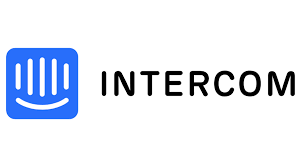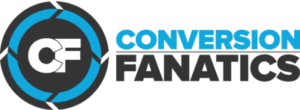LISTEN IN A POD APP
Filters
Robert Glazer | Acceleration Partners
Profitable channel for brands of all sizes
Robert Glazer, Founder and Chairman of the Board at Acceleration Partners, discusses partnership marketing. The performance-based nature of affiliate and partner programs make them inherently low-risk. With the technology available today, businesses at any level can easily set up a profitable affiliate program. Today, Robert talks about making partnership marketing profitable for brands of all…
Play PodcastRobert Glazer | Acceleration Partners
Is partnership marketing scalable?
Robert Glazer, Founder and Chairman of the Board at Acceleration Partners, discusses partnership marketing. When partnership marketing management tasks are handed off to SEOs and PPC persons, they don’t get enough attention. For companies looking to scale these programs successfully, a dedicated individual or team is recommended. Today, Robert talks about how to make partnership…
Play PodcastRobert Glazer | Acceleration Partners
Diversify your marketing portfolio with partnerships
Robert Glazer, Founder and Chairman of the Board at Acceleration Partners, discusses partnership marketing. When things get tough, the trend is to retreat to paying for outcomes. As marketing budgets continue to get tighter and digital auction prices soar, marketers will need to make some drastic changes to their portfolios. Today, Robert talks about diversifying…
Play PodcastMatt Gillis | Clean.io
How COVID has affected the malvertising landscape — Matt Gillis // Clean.io
Ben talks with Matt Gillis, CEO of Clean.io about advertising challenges and abuse. What does malvertising look like today and how has Covid affected it? Matt and Ben discuss in detail the relative increase in malvertising since the online traffic surge that came with the pandemic. Matt discloses how Clean.io prevents malvertising in real time.
Play PodcastMatt Gillis | Clean.io
Malvertising’s impact on marketers revenue & sub churn — Matt Gillis // Clean.io
Today, Matt Gillis, CEO of Clean.io talks with Ben about advertising malpractice and how it affects your revenue. Bad advertising practices can even limit or block your flow of subscribers. How can you protect your business? Ben and Matt discuss how malvertising works and what Clean.io does to prevent it.
Play PodcastRobert Glazer | Acceleration Partners
Choosing an Affiliate Program Tech Stack & Analytics — Robert Glazer // Acceleration Partners
In Part 2 of our conversation with Robert Glazer, we discuss choosing an affiliate program tech stack and the analytics that go with it. Robert is Founder and CEO at Acceleration Partners, an award winning global affiliate marketing agency, as well as a Co-Founder at BrandCycle, which represents emerging and well known publishers in the…
Play PodcastRobert Glazer | Acceleration Partners
When and How to Launch an Affiliate Program — Robert Glazer // Acceleration Partners
In this episode we discuss how to launch an affiliate program and decide when is the right time to do so. Joining us for today's episode is Robert Glazer, Founder and CEO at Acceleration Partners, an award winning global affiliate marketing agency. He’s also a Co-Founder of BrandCycle, which represents emerging and well known publishers…
Play PodcastAbout Marketing Channel: Affiliate Marketing
What is Affiliate Marketing?
Affiliate marketing is an arrangement between a brand and an external partner, in which the brand pays the partner a commission for driving sales of their products and/or services. This is oftentimes done through affiliate links.
Put more simply, an affiliate program is a commission-based partnership between the person that has content and/or users, and the person or brand that is selling something.
Many people think that you have to be a successful blogger who creates blog posts and great content constantly in order to make a passive income from affiliate marketing work. The reality is that an affiliate program can be used by many different people to create a passive income, and it can be used for both digital products and physical products.
Another common misconception about affiliate marketing is that it is considered to be a marketing channel. In reality, affiliate marketing is a methodology and a way of forming a partnership between a publisher and an advertiser.
Affiliates exist across all of the marketing channels including social media, paid search, display, search engine optimization etc. Affiliates can also range from being a multibillion dollar public company like Ebates to the mom blogger in their basement that makes a commission on the sale of baby products that they talk about in their blog posts.
Affiliate marketing has evolved in many ways since the 90's and can viewed as having gone through three phases so far:
Phase 1: The 'Wild Wild West'
Phase one of Affiliate Marketing is oftentimes referred to as the 'Wild Wild West' because of the 'anything goes' mentality that it operated on.
This was back when e-commerce was in its nascency and many were still unsure of how to make money online. Those that were paying attention, however, realized the potential in affiliate programs and found a number of loopholes in order to capitalize on the billion-dollar industry.
The early success of affiliate sites and affiliate programs was due in part to the unsupervised nature of the work. Back then, if your affiliate sales were high, brands didn't ask how they were doing it, why they were doing it, and you might not have ever even talked to them before. To brands back then, the more affiliate revenue, the better. They weren't interested in asking questions or getting answers as long as the money was coming in.
This type of transactional and disconnected relationship is what summarized the 90's version of affiliate marketing. Overall, this is a system of affiliate marketing that is unacceptable by today's standards.
Phase 2: The Partnership
Affiliate marketing shifted from unorganized and mismanaged to something more like a partnership between brands and affiliate marketers. Brands now wanted to know what their affiliates were doing, how they were doing it, and to incentivize them further to do what is performing best in an open and transparent way. Many brands hired affiliate managers to handle these relationships and partnerships. Instead of sitting back and watching affiliate revenue come in, brands now said "Hey, I like what you're doing. Let's connect and I'll give you real time tracking and payment to work with you. And if you need creatives or offers, let me know what you need."
One of the key differentiators between phase one and phase two is that brands started asking themselves: are we getting quality and should we work with these people? We know they're generating revenue, but is that really affiliate revenue? Are these low quality click-throughs and what is the conversion rate? Is that revenue actually valuable to us?
This is in contrast to Phase one, where the highest volume affiliates got paid the most regardless of the quality of the leads or customers they brought in. Phase two started a real push towards paying the highest volume affiliates the least and recognizing that even though they're driving a lot of volume, the quality is not as high as affiliates who drive a smaller volume. Bigger affiliates during this time saw their commission rate drop, so instead of receiving 10% for every sale, it dropped to 2% for example.
Phase 3: Software as a Service
In phase three, affiliate marketing moved towards a Software as a service (SaaS) solution offered directly to brands so that they could run their own programs instead of paying markups through agencies.
This shifted the way that affiliate program relationships were handled so that instead of paying massive performance fees to these networks to manage a relationship with an affiliate, the relationship could be managed in-house by the brand through easy-to-use software for a fixed fee and no performance markups.
An added benefit to no performance markups is that a lot of these platforms offer cross channel analytics and pretty sophisticated commissioning in order to come up with rules that match a business' logic e.g. "I want to pay a coupon site where there wasn't a partner in the transaction, then I want to do the commission rates this way."
This was the first significant update to the pricing model of affiliate marketing over a 20 year-period.
When and how should we start an Affiliate Marketing Program?
Generally speaking, a company should reach a couple million dollars in revenue before they launch an affiliate program. The reason is if it's handled incorrectly, your affiliate marketing program could build a bad reputation and affect the work you do with affiliates in the future. Early on as a new brand, you have to fight for shelf space, you're asking people to take risks and work on a performance basis, and oftentimes companies change their model, pricing or pivot to something different. All of these changes can leave a bad impression on affiliates so it's better to get through this phase of growth and development first.
Once you get to that point, you can start small and sign up with an affiliate network which can bring real value to small brand because it helps get your brand out there to an existing base of publishers. The key is to make sure you're giving your program the time and attention it needs. Without that, and if you set it to auto-approve affiliate sales, you run the risk of logging back on two years later and finding thousands of affiliates who are all cheating.
When you reach to 10 to 25 million dollars in revenue, that is when you should begin investing a significant amount of resources in order to scale your affiliates program. At this point, you can treat it as a key strategy in your business.
Advantages and Disadvantages of Affiliate Marketing
Affiliate marketing can be beneficial for a number a reasons, including:
- It brings in a larger volume of web traffic
- It helps your company reach new customer bases in different countries
- It builds key relationships with high-volume affiliates
- It outsources some of your marketing work
On the other hand, some of the main concerns with affiliate marketing include:
- Fraudulent and shady business practices to boost purchases through affiliate links
- The costs associated with using an affiliate network or SaaS solution
- The time and effort it takes to maintain or invest in an affiliate manager in order to ensure the program is run efficiently.
Fraud in Affiliate Marketing
Essentially there are two types of fraud in affiliate marketing. There is hard fraud, which is fake leads or inappropriately cookie stuffing that you typically find in lead models. Then there's attribution fraud where people are trying to show up at the end of the transaction and not actually complete the transaction. This tends to be less frequent because it involves buying products and returning them to get an affiliate commission.
A lot of times people conflate these two types of fraud, but it's important need to look at them separately so they can be tackled appropriately.
It's important also to pay close attention to your affiliate partners, particularly when they're starting and see how they're performing out of the gate. If things fluctuate drastically, that's typically a sign that something isn't right.
Affiliate Programs and Search Engine Optimization
Affiliate marketers use SEO affiliate marketing to harness the power of SEO to improve the ranking of their blogs, landing pages, websites and affiliate programs in search engine results. SEO affiliate marketing isn't for the faint of heart as it requires affiliate marketers to keep up with the latest SEO techniques and optimizations on a regular basis.
The barometer of success in SEO is always changing. Affiliate marketers' affiliate programs can benefit from SEO by:
- Writing informative affiliate product descriptions and using high-quality images on landing pages to boost conversions.
- Identifying the right affiliate products to write content about.
- Setting affiliate links to "Nofollow," to improve your affiliate network.
- Focusing on long-tail keywords to boost traffic with less competitive keywords.
- Choosing a relevant domain name that matches their affiliate program.
- Improving affiliate link building with guest blog posts, great articles and social media posts.
- Implementing mobile-friendly features on their affiliate website.
Obtaining Affiliate Links
Affiliate links are the key to getting paid for your affiliate program's marketing efforts. An obstacle new affiliate marketers face is finding the right affiliate programs and offers to promote.
You can obtain affiliate links in a simple step-by-step process:
- Search for an affiliate product to promote.
- Identify if the product is associated with an affiliate program.
- Signup with the affiliate program.
- Wait to be assigned an affiliate link to promote said product.
- When traffic encounters the link and clicks on it, the affiliate is paid.
Many major retailers own affiliate networks, which is another easy method to acquire affiliate links. Amazon, eBay and Clickbank own substantial affiliate networks. Keep in mind the Federal Trade commission regulates how affiliate links are used in affiliate programs. Before you begin your affiliate link search, familiarize yourself with FTC affiliate program guidelines to avoid penalizations.
MarTech and Affiliate Marketing
To deal with fraud in affiliate marketing, there are a number of MarTech tools available. These tools can be used to figure out how, for example, someone with no referring URL goes from $100 in sales a week to 10,000 overnight. While there's a small chance they hit gold, the likelihood is that something's not right. You can ask the affiliate about it and they'll give you an answer but when they can't answer, you can get some of the deeper data through MarTech tools and look at the clickstream and some of the fraud and fingerprinting tools to see if you can figure out what it is.
If you're interested in learning more about Affiliate Marketing, be sure to check out our episodes below.
Read MoreRead Less
Sponsors of the MarTech Podcast


























